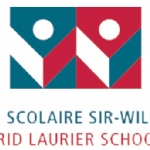Over
the past few years vocational training professionals at the Sir Wilfred Laurier
School Board have been reviewing and redefining the traditional understanding
of their programs. Some very positive outcomes are arising.
The
organizational setting found in vocational training classrooms is one of its
strongest elements. Class composition
remains at 20 students to one instructor. A personalized structure appears
allowing for a synergy to build among students and between student and teacher.
More learning time is available for the teacher to support each student’s
apprenticeship to the “trade”.
This
idea of apprenticeship is central in vocational programs. Teachers are masters
in the field of study, reminiscent of the “guilds” of the past. As such, students are apprentices whose
abilities within this “guild” develop over time spent under a master’s
tutelage. The goal is to move the apprentice to a level of competency which
allows for membership in the vocational community and a place as a contributing
member of the workforce.
Coursework
reinforces this idea. Each program is built on the practical application of
requirements of the program. This is not to say that there is no theoretical
content. Rather theory curriculum is directly linked to the application of
theory to practice. In vocational programs there is no room for “the extras”.
Courses are built and maintained as being in line with the needs of the
day-to-day application of the trade. Theory is analyzed and applied to the real
world.
As
vocational education’s goal is to graduate autonomous workers, students leave
the classrooms in possession of marketable trades. This does not mean education
ends; many students will continue onto college and university studies with work
skills in hand, studying and contributing to the workforce simultaneously. Research
indicates that adult learners may not return to school due to financial constraints. While vocational education students may
benefit from funding from both Emploi Quebec and the Loans and Bursaries
Program, it is a benefit to be able to practice a marketable trade while
completing prerequisites or moving on to pursue further levels of education.
This
ability to work and study simultaneously can be attributed to the learning
environment found in vocational training. Students, or rather apprentices, must
develop autonomy through programs built on applying and analyzing concrete
problems found in the workplace. There is no grey zone in evaluation of
learning in its courses; it is a pass or a fail. Either you can produce the
correct tangible result or not. These results are based on case study; be they
patient needs in the Health sector, client needs in the Commerce and Tourism
sectors, or building plans in the Trade sectors.
How
is Sir Wilfrid Laurier School Board working towards these goals? Students have
diverse interests and successful vocational training opportunities must be made
available. Through developing partnerships with colleagues in the Laval –
Laurentians - Lanaudière regions, course offerings have increased from eight
programs to 21 – a 262<>percentage<> increase! The new multi-service vocational centre in St.
Eustache is a result of the Board’s commitment to improving access to a wider
range of vocational programs. Our new centre, in partnership with Commission
scolaire de la seigneurie des-mille-Îles, offers five high demand programs;
Carpentry, Plumbing and Heating, Residential Painting, Concrete Finishing, and
Welding and Fitting.
The
Board services a geography of 35 000 sq. km and vocational training centres are
bridging the gap through the creation of hybrid models of program delivery
which provide students with opportunities to complement at-home studies with
those that must be completed on-site. These continue to be developed, and what
began as a project for students in Hotel Reception has mushroomed into hybrid potential
in seven separate programs; Hotel Reception, Starting a Business, Computing
Support, Secretarial Studies, Assistance in Healthcare Facilities, Home Care
Assistance, and Construction Business Management
Moving
forward into the upcoming year new organization structures will provide students
the benefit of increased access to their mentors through the introduction of
student advisories where mentor and apprentice meet regularly to review areas
of success and establish learning goals. Study skills programs and examination
review classes will support these goals.
While
focusing on the benefits of smaller classes, mentor relationships, increased
program options, hybrid programs, and student support, vocational training
opportunities at the Sir Wilfrid Laurier School Board offer its community from of
all backgrounds, abilities, and interests the power of unlimited potential.
For
inquiries or further information regarding programs, students are invited to
contact the Centre in Pont Viau at 450-680-3032, or visit our web page at www.bilingualtraining.ca.
Eileen Kelly is Center Director for
Vocational Studies at the Sir Wilfrid Laurier School Board. She holds a Master
Degree in Education, Diploma in Education, and Bachelor Degree conferred by
McGill University. She also holds three professional development certificates
from Harvard University.

 In The Latest Issue:Latest Issue:
In The Latest Issue:Latest Issue:
- Celebrating Community an...
- Celebrating the Unsung H...
- Understanding Newborn St...
Articles
Calendar
Virtual- ANNUAL TEACHER APPRECIATION CONTEST
- APPUI LAVAL
- ARTS & CULTURE
- CAMPS
- CAR GUIDE
- CCIL
- CENTENNIAL ACADEMY
- CHARITY FUNDRAISING
- CITYTV
- COSMODÔME
- COMMUNITY CONNECTIONS
- COVER STORY
- DINA DIMITRATOS
- ÉCOLE SUPÉRIEURE DE BALLET DU QUÉBEC
- EDITORIALS
- ÉDUCALOI
- EDUCATION
- EMPLOYMENT & ENTREPRENEURSHIP
- FÊTE DE LA FAMILLE
- FÊTE DU QUARTIER SAINT-BRUNO
- FAMILIES
- FESTIVAL LAVAL LAUGHS
- FÊTE DE QUARTIER VAL-DES-BRISES
- FINANCES
- GLI CUMBARE
- GROUPE RENO-EXPERT
- HEALTH & WELL-BEING
- 30 MINUTE HIT
- ANXIETY
- CHILDREN`S HEALTH & WELLNESS
- CLOSE AID
- DENTAL WELLNESS
- EXTREME EVOLUTION SPORTS CENTRE
- FONDATION CITÉ DE LA SANTÉ
- GENERAL
- HEARING HEALTH
- MESSAGES FROM THE HEALTH AGENCY OF CANADA
- MENTAL HEALTH
- SEXUALITY
- SOCIAL INTEGRATION
- SPECIAL NEEDS
- TEENS
- THE NUTRITION CORNER
- THE NUTRITION CORNER - RECIPES
- VACATION DESTINATION
- WOMEN'S FITNESS
- WOMEN'S HEALTH
- HILTON MONTREAL/LAVAL
- HOME & GARDEN
- INTERNATIONAL WOMEN'S DAY
- JAGUAR LAVAL
- LAVAL À VÉLO
- LAVAL FAMILIES TV SHOW
- LAVAL FAMILIES MAGAZINE CARES
- LAVAL URBAN IN NATURE
- LE PARCOURS DES HÉROS
- LES PETITS GOURMETS DANS MA COUR
- LEON'S FURNITURE
- LEONARDO DA VINCI CENTRE
- LFM PREMIERES
- LIFE BALANCE
- M.P. PROFILE
- MISS EDGAR'S AND MISS CRAMP'S SCHOOL
- MISSING CHILDREN'S NETWORK
- NETFOLIE
- NORTH STAR ACADEMY LAVAL
- OUTFRONT MEDIA
- PASSION SOCCER
- PARC DE LA RIVIÈRE-DES-MILLE-ÎLES
- PÂTISSERIE ST-MARTIN
- PIZZERIA LÌOLÀ
- PLACE BELL
- PORTRAITS OF YOUR MNA'S
- ROCKET DE LAVAL
- SACRED HEART SCHOOL
- SCOTIA BANK
- SHERATON LAVAL HOTEL
- SOCIÉTÉ ALZHEIMER LAVAL
- STATION 55
- STL
- SUBARU DE LAVAL
- TECHNOLOGY
- TEDXLAVAL
- TODAY`S LAURENTIANS AND LANAUDIÈRE
- TODAY`S LAVAL
- WARNER MUSIC
- THIS ISSUE
- MOST RECENT
Magazine
Unlimited Opportunities in Vocational Training
Articles ~e 105,7 Rythme FM 4 chemins Annual Teacher Appreciation Contest Appui Laval Arts & Culture Ballet Eddy Toussaint Camps THIS ISSUE MORE...
CONTESTS Enter our contests
CONTESTS Enter our contests
CALENDAR
Events & Activities
COMMUNITY Posts Events
PUBLICATIONS Our Magazine Family Resource Directory
LFM BUSINESS NETWORK Learn more
COUPONS Click to save!
COMMUNITY Posts Events
PUBLICATIONS Our Magazine Family Resource Directory
LFM BUSINESS NETWORK Learn more
COUPONS Click to save!
SUBSCRIPTIONS
Subscribe to the magazine
Un-Subscribe
E-NEWSLETTER Subscribe to our E-newsletter Un-Subscribe
WRITE FOR US Guidelines & Submissions
POLLS Vote today!
E-NEWSLETTER Subscribe to our E-newsletter Un-Subscribe
WRITE FOR US Guidelines & Submissions
POLLS Vote today!
ADVERTISERS
How to & Media guide
Pay your LFM invoice
SUGGESTIONS Reader's Survey Suggest a Listing
LFM About Us Our Mission Giving Back Contact Us
SUGGESTIONS Reader's Survey Suggest a Listing
LFM About Us Our Mission Giving Back Contact Us
 PICK-UP LOCATIONS
Get a copy of LFM!
PICK-UP LOCATIONS
Get a copy of LFM!
TERMS & CONDITIONS Privacy | Terms
ISSN (ONLINE) 2291-1677
ISSN (PRINT) 2291-1677
Website by ZENxDESIGN



 BY:
BY: 


Tweet
Share